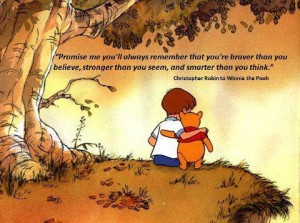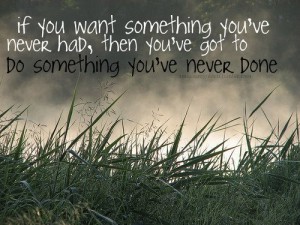- DOWNLOADS
-
GENERAL
FOR TRAINERS
(Dear Friend, PLEASE READ THIS, THEN YOU CAN UNDERSTAND HOW YOU CAN MAKE THE BEST USE OF YOUR TRAINERS TO HELP YOU PASS YOUR CSA!)
- Useful things to know about IMGs – their perspective
- A PowerPoint on IMGs
- Celia Robert’s Presentation on IMGs and Linguistic Capital
- Notes on Celia Robert’s presentation
- Helping the IMG community – group meeting notes
- 8 ways to help your IMG trainee
- Guidance for trainers with IMGs – quick tips
- Guidance for trainers with IMGs (detailed)
FOR TRAINEES (to help you with COTs and the CSA):
A MUST READ! No Excuses:-)
- Scripts for Ideas, Concerns and Expectations
- Scripts for Psycho-Social-Occupational Enquiry
- Scripts for Explanation (Diagnosis)
- Scripts for Formulating a Management Plan
- Scripts for Checking Understanding
VIDEO AND BOOK RESOURCES
- There is a fabulous teaching resource set by Marie McCullagh and Ross Wright: It’s called ‘Good Practice: Communication Skills in English for the Medical Practitioner’. For more information, click here. To buy it, click here (and click on the green book icons)
- London Deanery have produced two video resources that are pretty good
- ‘Words in Action’ – a resource to aid to communication skills training. The DVD uses real consultations recorded in the multi-cultural London borough of Lambeth to examine closely and systematically what goes on in conversations with patients who speak limited English, or who have a very different style of communicating from their GPs.
- ‘Doing the Lambeth Walk’ – a companion resource aimed at doctors new to UK general practice. The DVD and accompanying booklet encourage practitioners to reflect on how they use their communication skills in English, manage the consultation and share decision-making with patients. It will help practitioners ‘tune in’ to the different ways in which patients speak and develop the skills needed to prevent and repair misunderstandings.
- Each costs £5 but buy both for £8.50 (incredibly cheap!). To order your copies, please contact Dale Burton at dale.burton@londondeanery.ac.uk or phone 020 7866 3123 or complete a slip and return to Miss Dale Burton, 2nd Floor, London Deanery, Stewart House, 32 Russell Square, London WC1B 5DN.
- Other good DVD resources are
- Effective Consulting:The Five Key Tasks by Haymarket Medical
- Effective Consulting: Interpersonal Skills for the CSA by Dr. Peter Tate
- Again, both are available to buy here
- Particularly good books for starting to learn about communication skills are:
- The Doctor’s Communication Handbook by Peter Tate
- The Inner Consultation by Roger Neighbour
- The Naked Consultation by Liz Moulton
- Skills for Communicating with Patients by Silverman, Kurtz and Draper (one of the best books, but better read after one of the above three)
- You can order any of these here.
- PLEASE BUY USING THESE LINKS TO TAKE CARE OF OUR FAVOURITE BRADFORD VTS SITE!
- Thank you!
In Dr Ramesh Mehay’s own words-
This is dedicated to those GP trainees who are training in the UK but who graduated in medicine at a university elsewhere (like Africa, India and so on) and their GP Trainers.
International Medical Graduates are often referred to as IMGs.
Personally, I feel a little uncomfortable with labelling a group of people in this way because it creates stereotypes rather than embracing individuality and diversity. This is made worse when the word is often used in association with negative circumstances.
However, what I can safely say is that medical educators who use this word are usually using it to help identify a group of people who they want to help.
SPECIFIC PROBLEMS IMGs FACE
Although many IMGs underperform, they are still highly intelligent people.
Please remember that less than 1% of the world’s population have a medical degree!
Compared to British born and bred graduates, IMGs have a very difficult intellectual task to do.
In addition to dealing with medical issues, they have to do a number of things simultaneously that the rest of us take for granted – like translating between two languages, trying to understand non-verbal and verbal nuances, grasping colloquial remarks, and doing that extra thing to make patients feel that they’re being understood and respected.
How would we fair with these other tasks if we were in another country?
In terms of MRCGP, the main difficulty IMGs face is with CSA and the COT part of Work Place Based Assessment. Unfortunately, there is a much higher failure rate amongst IMGs doing the CSA than those who graduated from the UK.
We think the problem is that IMGs are being taught consultation skills but are not being taught how to apply them.
The other problem is that most IMGs are relatively socially and physically isolated compared to those born in this country. This is made worse if they belong to a scheme on the coast like Scarborough or Whitby.
We need to somehow tackle this too if we are to improve their social, linguistic and cultural capital. Interestingly, female IMGs find it easier to adapt to the professional culture in the UK than men.
This may be because women in other cultures may not have the same status and expectations as their male counterparts and are therefore more adaptable to the ‘ partnership’ approach that is expected UK doctors.
IMG doctors also usually find it hard to admit their weaknesses, for example with language.
An example was quoted where a doctor was unable to admit to the patient that his language was not always good enough and that he occasionally misunderstood things.
Probably the best way ‘in’ is via role-play. IMGs learn a great deal from role-play – for instance, getting them to role-play a scenario in which they believe that communication was difficult either based on personal experience or one that they know well enough to act out.
Peer learning in half-day release, particularly where doctors at different stages of specialist training interact with each other, is another valuable approach.
The key thing here is to get them to ‘break away’ from peer groups that consist purely of other IMGs (which is understandably their usual default position of comfort and safety). We need to gently get them to mix with others.
‘BRITISHNESS’ AND LINGUISTIC CAPITAL
Some trainees attend CSA courses and get told (in their feedback) that they need to be ‘more British’. Personally, I think it’s an awful phrase because
- It is vague and therefore can mean different things to different people. For example, is spending two weeks in a European mass tourist holiday destination, getting sunburnt, drinking too much, slurring unintelligible football chants and taking all sorts of risks with one’s sexual health the essence of being British? Or is it tut tutting at such behavior through the pages of a popular newspaper? (Hopefully, you’ll say neither).
- It doesn’t celebrate the cultural diversity and individuality inherent within our IMGs – which we all can use and learn from. Actually, Damian Green (the UK’s immigration officer) recently said that ‘to be British is to be part of a ‘tolerant and mutually respectful society’.
- It might give the impression to others that being ‘British’ implies a sense of a more superior culture, which is clearly not the intention (nor the reality) when trainees are being advised to be more ‘British’.
I think what people mean when they advise their trainees that they need to be ‘more British’ is that they need to develop their linguistic capital in their internal linguistic bank.
So let’s go onto define what that exactly means. Linguistic capital (Bourdieu, 1990) is defined as the mastery of and relation to language. And that doesn’t just mean having a good vocabulary. Other than fluency, we are talking about the expertise and comfort with a language – idioms, turns of phrase and so on.
Trainees can expand their linguistic capital if they submerge themselves in British culture through watching soap operas, widening their social circle of friends and going out with English groups.
The idea is that by being immersed in UK idioms, turns of phrase, meta-communication, tone of voice etc., one understands them better and might even start to use them.
If IMGs make no attempt to get a grasp of these things, they then remain culturally alien to them. This in turn will affect their learning, growth and thus other people’s (e.g. patients’) faith in them.
Investing in linguistic capital is a long term endeavour and that the returns are seldom immediate.
A NOTE TO ALL IMGs…
By having good linguistic capital of a culture that is not part of your embodied* cultural capitol (i.e. from the country you were brough up in) can give you three good advantages in your host country:
- It gives you a means of being able to communicate effectively with others (like patients)
- It gives others some sort of faith, respect and reliance in you. It’s like presenting yourself and showing that you’ve submerged yourself in your surrounding culture and have acquired a lot from it – and people respect you for that no matter what country you’re in.
- Linguistic capital thesis states that trainees who possess, or develop linguistic capital, thereby have access to better life chances.
Remember, linguistic capital can be acquired even by those who do not have ancestral precedents.
For example, it is completely possible for a Tamil trainee who still lives with his Tamil speaking parents to acquire linguistic capital that is grounded in English.
* Embodied cultural capital = consists of both the consciously acquired and the passively “inherited” properties of one’s self (with “inherit[ance]” here used not in the genetic sense but in the sense of receipt over time, usually from the family through socialisation, of culture and traditions). Cultural capital is not transmissible instantaneously like a gift or bequest; rather, it is acquired over time as it impresses itself upon one’s habitus (character and way of thinking), which in turn becomes more attentive to or primed to receive similar influences.
TOP TIPS FOR IMPROVING YOUR LINGUISTIC CAPITAL
- Start watch English TV soaps (and talk about episodes with some of your reception staff, admin staff, colleagues and British born friends).
- Start making new friends – don’t just stick with other people who are also IMGs (otherwise you may learn some grossly wrong habits). Try and make some British-born friends too. Go out for a coffee, beer, meal…. anything – just socialise and engage in banter!
- Try starting to talking at home in English.
- Take an interest in novels written in English – especially if they’re based in the UK. You may understand UK society better.
TOP TIPS FOR IMGs WANTING TO IMPROVE THEIR CONSULTATION SKILLS
The problems with consulting skills seem to follow a similar pattern, with a lack of listening particularly in the early part of the consultation and as a result, jumping to premature conclusions about the nature of the problem. Nick Whelan has a useful analogy that ‘ you can’t cross the road from halfway across; to do it well or to survive the crossing, you have to get it right at the start’.
Going on a one off CSA course is not necessarily going to make it all better for you – get out of this bad way of thinking that the answer to everything is a course!
What you need is continuous, consistent and persistent targeted training with repeated practise on substantial issues like communication skills.
Half days are often not thought to allow sufficient time for deep learning to be supported. Even with full days, you must continue to PRACTISE those skills in your everyday working life.
Try and view the courses you attend as platforms that allow you to move off to a higher level.
Stop seeing them as quick fixes.
TOP TIPS FOR GP TRAINERS
(Dear Friend, Again PLEASE READ THIS, THEN YOU CAN UNDERSTAND HOW YOU CAN MAKE THE BEST USE OF TRAINERS TO HELP YOU PASS YOUR CSA!)
- Get to know and like your trainee. Otherwise, that altruistic nature of wanting to help them might fade and disappear.
- Use the RDM-p framework to help ‘diagnose’ what the current difficulties are for your IMG trainee. RDM-p framework available here.
- Start any remediation work EARLY. If your trainee is at the ST1 stage – start and do it there! The earlier, the better. Don’t just think someone else will pick it all up and fix it later. You need to start that fixing process early, right now! (Likewise for Educational Supervisors who may notice ‘things’ whilst the trainee is in a hospital post). We have to act before trainees begin to fail – otherwise resources are wasted and all stakeholders suffer. And we owe it to our trainees to give them the best opportunity for success and development.
- It can be difficult to judge the extent to which to educate IMG’s separately from their UK trained peers. There are potential risks of stigmatisation and emphasising differences that must be avoided. The experience is that IMG’s appreciate the insight of educators into their difficulties and their support in overcoming specific challenges. Peer education is a powerful, and finding opportunities for additional educational activities for doctors with a heavy service commitment can be challenging.
- Thank you sooooo much, Dr Mehay. We all love you for what you are doing… Awesome!
Above All My Friend!The change should come from within You, Your Minset!Believe in You….. Be YOU!Be the change You want to see!Consistent Action gives Consistent Results….Then Sky is the limit!To Your Success,Hema xoxo.
-
Hellooo Friend,
Hema Here!
Give me a bigggg Hi5!
CSA RESOURCES SPECIALLY FOR INTERNATIONAL MEDICAL GRADUATES.
If you are one of the proud IMGs like me…
Yes the following golden nuggets are just for YOU…
To pass your CSA with flying colours and for your patients love you forever!
Believe me in this one.
I thank Dr Ramesh Mehay for allowing me to use these resources just for You!
Yes, I loveee Bradfordvts!
Here You Go!
Please read my other article on CSA RESOURCES for important information about CSA Books, Websites, DVDs etc.
Now back to our point – CSA Resources to IMGs 🙂


